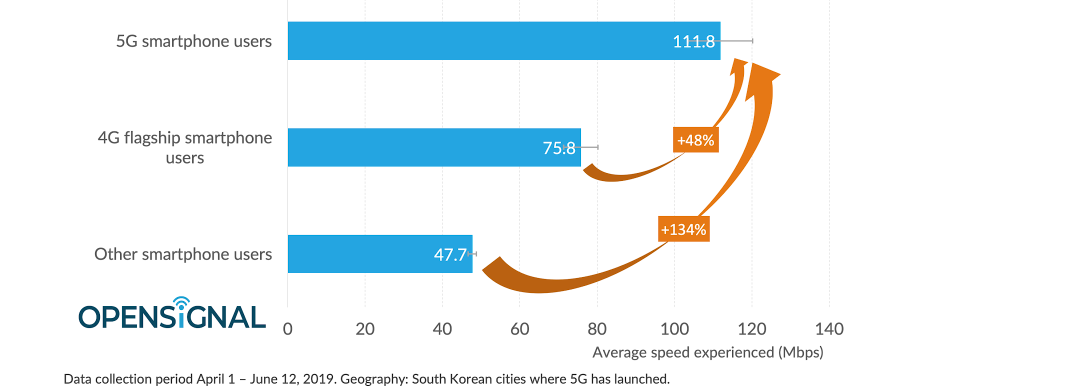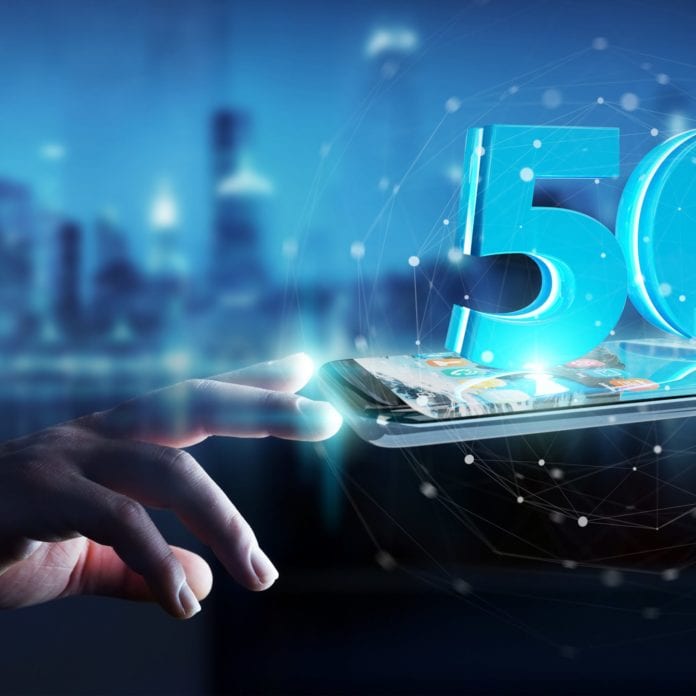Just how fast is 5G, really? OpenSignal’s analysis from South Korea showed blazing speeds, with 5G smartphones averaging 48% faster speeds than comparable 4G smartphones and maximum speeds that pushed to nearly a gigabit.
Average download speeds for 5G smartphone users in South Korea were 111.8 Mbps, OpenSignal said in a blog entry, which it calculated was 48% faster than “comparable recent 4G flagship smartphones” and a whopping 134% higher than the speeds that Korean users of more run-of-the-mill smartphones get, which was around 47.7 Mbps.

Even with those impressive average speeds, the company said, the maximum experienced speed on 5G devices was much faster. The maximum speed that OpenSignal has recorded in South Korea so far is 988 Mbps, which it noted is 8.8 times as fast as the average 5G speed.
In the U.S., OpenSignal said that it has recorded users getting 1.2 Gbps (measured against normal content delivery networks, not special test servers, the company noted — under test conditions, it has seen speeds in the U.S. as high as 1.5 Gbps.)
OpenSignal based its 5G testing analysis in Korea on data collected between April 1 to June 12 in South Korean cities where 5G has launched. These are NonStandalone 5G networks, and OpenSignal pointed out that while the average download speeds have jumped, the upload speeds and latency are similar for 4G smartphone users and 5G smartphone users. Latency averaged 35.9 milliseconds on 5G smartphones, compared to 37.4 ms on flagship 4G smartphones and 38.3 ms on other phones. In terms of upload speeds, the flagship 4G smartphones actually performed slightly better than 5G smartphones, with average upload speeds of 16 Mbps on flagship 4G smartphones compared to 13.9 Mbps on 5G smartphones.
“This upload and latency finding is what Opensignal would expect at this early stage of the 5G era because initial 5G technology does not yet seek to improve either characteristic,” the company said.

